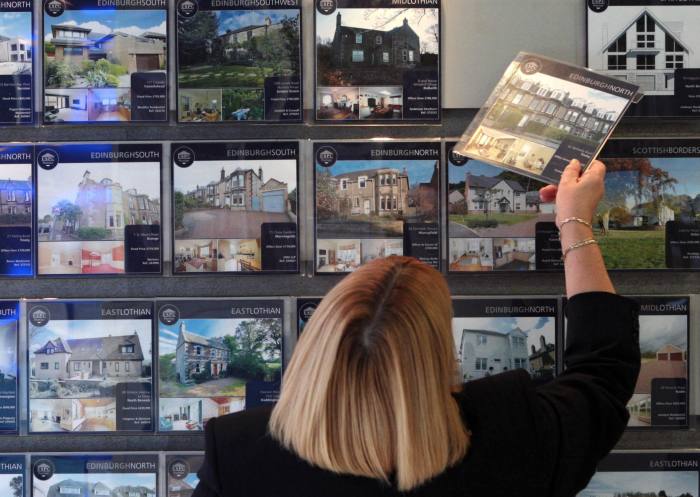
House prices in the UK fell for the first time since July 2021 last month as the sector reckoned with the impact of September’s “mini” Budget and the subsequent economic fallout.
Prices fell by 0.9 per cent month-on-month in October, the first monthly drop in 15 months, while annual UK house price growth slowed to 7.2 per cent in October, from 9.5 per cent in September.
The monthly fall was the largest since June 2020.
The figures released today (November 1) as part of Nationwide’s house price index show that the average house price in the UK sat at £268,282 in October, down from £272,259 in September.
Nationwide’s chief economist, Robert Gardner said the data showed the market has undoubtedly been impacted by the turmoil following the “mini” Budget, which led to a sharp rise in interest rates.
“Higher borrowing costs have added to stretched housing affordability at a time when household finances are already under pressure from high inflation,” Gardner said.
“For example, the increase in mortgage rates meant that a prospective first-time buyer earning the average wage and looking to buy a typical first-time buyer home with a 20 per cent deposit would see their monthly mortgage payment rise from circa 34 per cent of take-home pay to circa 45 per cent, based on an average mortgage rate of 5.5 per cent.
“This is similar to the ratio prevailing before the financial crisis.”
In Gardner’s view, the market is set to slow in the coming quarters, but he noted that the outlook is “extremely uncertain”.
“Much will depend on how the broader economy performs, but a relatively soft landing is still possible,” he said.
“Longer term borrowing costs have fallen back in recent weeks and may moderate further if investor sentiment continues to recover. Given the weak growth outlook, labour market conditions are likely to soften, but they are starting from a robust position, with unemployment at near 50-year lows.
“Moreover, household balance sheets appear in relatively good shape with significant protection from higher borrowing costs, at least for a period, with over 85 per cent of mortgage balances on fixed interest rates.
“Stretched housing affordability is also a reflection of underlying supply constraints, which should provide some support for prices,” Gardner added.
Looking to the future
Others in the industry also attributed the sharp decline in house price growth to September’s “mini” Budget, but were split on where house prices are heading.
Create Finance’s director, Aaron Forster is of the view that we may see a raft of forced sales next year if the current pressure continues.
“The market generally slows down in the closing stages of the year anyway as people's attention switches to Christmas but this year that could happen earlier than usual due to the level of mortgage rates and the depth of economic and political uncertainty,” he said.





